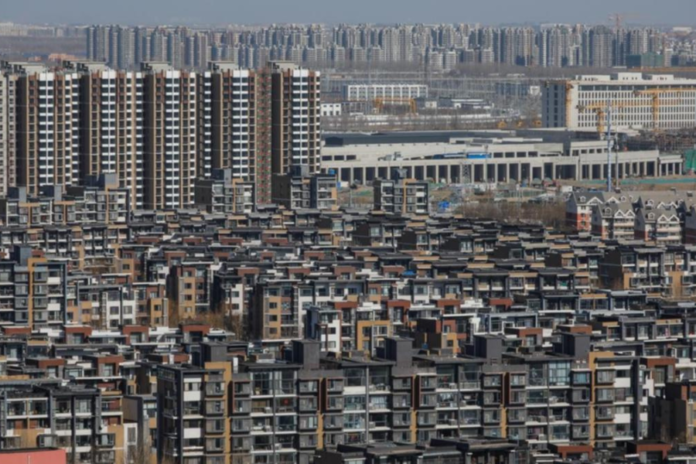Chinese Economy Slowdown: Worries that China’s property sector problem is quickly choking what little economic momentum there is have increased in response to missed payments on investment products by a major Chinese trust firm and a decline in home values.
A top official has informed investors that Zhongrong International Trust Co., which has historically had significant real estate exposure, has fallen behind on payments for dozens of investment products since late last month.
China’s $3 trillion shadow banking industry is roughly the size of Britain’s economy, and over the past year, worries about its disproportionate exposure to real estate and threats to the larger economy have intensified.
As many private investors are exposed to the high-yielding trust instruments, a run of defaults in the shadow banking sector might have a wide-ranging chilling impact. In the absence of more robust assistance measures from Beijing, missed payments may have an adverse effect on the already shaky consumer confidence.
Following disappointing news on Tuesday, Barclays was one of several international banks to lower its projections for China’s growth in 2023, citing a faster-than-expected decline in the property sector. It decreased its growth prediction from 4.9% to 4.5%.
Despite an increasing number of developers missing payments, China has so far mainly avoided a spillover of a debt pressure in the real estate sector to the country’s $57 trillion financial system.
However, reports of new defaults have raised concerns about contagion.
China’s new home prices decreased in July for the first time this year, adding to the gloom. This is just the latest in a spate of dismal data that highlights the need for more aggressive policy support.
According to calculations by Reuters based on data from the National Bureau of Statistics (NBS), prices decreased 0.2% countrywide month over month and 0.1% annually.
But outside of the nation’s megacities, including Shanghai and Beijing, the situation is even worse. For the 17th consecutive month in June, the average new home prices in the 35 smallest cities assessed by NBS decreased year over year.
Numerous homebuyers have been scared away by the deepening financial issue at key developers, including Country Garden (2007.HK), the largest private developer in the nation. As a result, real estate investment, home sales, and new construction have been on the decline for more than a year.
Some observers claim the fall, coupled with the shock from three years of rigorous COVID policies, has had an extraordinary impact on activity given that the real estate market has historically made up around a quarter of China’s economy.
The majority of analysts anticipate greater drops in home sales and prices in the upcoming months.
Tuesday’s data added to a raft of weak economic indicators in recent months, and has raised calls from China watchers for authorities to roll out bolder support measures to arrest the downward spiral.
Despite an expansion of financial assistance for developers and incentives for first-time homebuyers and upgraders, China’s real estate market is still having trouble.
From 38 cities the previous month, 49 of the 70 cities had a decrease in new home prices month over month in July.
At a Politburo meeting last month, China’s senior officials committed to change the country’s property laws.
The housing regulator has also called for actions to support the industry, such as lowering house mortgage rates and down payment requirements for first-time homebuyers and removing mortgage restrictions for those looking to modify their residences.
In an effort to boost morale, some cities, like Zhengzhou, have already loosened a few property restrictions. Reduced down payments are being considered in provincial capitals like Xian and Fuzhou for locals purchasing second homes.
“We continue to expect more housing easing measures in coming months, including further reduction in down-payment ratios and more relaxation of home purchase restrictions in large cities, among others,” economists at Goldman Sachs said in a note to clients.



